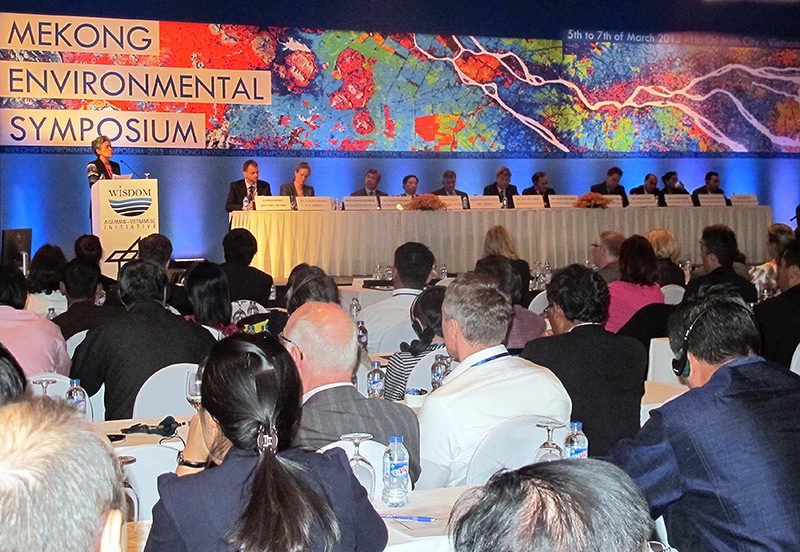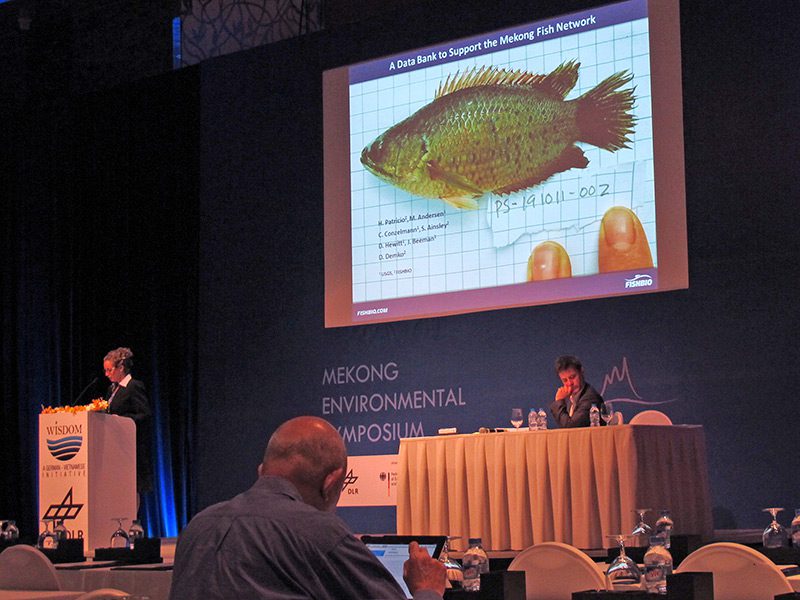Friday March 15, 2013
FISHBIO recently attended the Mekong Environmental Symposium, held March 5-7 in Ho Chi Minh City, Vietnam, which gathered governmental decision-makers, scientists, and organizations active in the Mekong Basin region. The German Aerospace Center (DLR) and the WISDOM Project hosted the event, which brought together researchers studying river ecology, environmental monitoring, hydrology, socio-economics, energy, and climate change. The goal of WISDOM, a collaboration between Vietnamese and German scientists, was to design and implement an online data platform for the Mekong Delta, which contains information from the fields of hydrology, sociology, information technology, and earth observation. The first day of the symposium included the handover of WISDOM to the Vietnamese Government, as well as speeches by representatives from each of the six riparian nations: China, Myanmar, Lao PDR, Thailand, Cambodia, and Vietnam. The second and third days of the symposium included many presentations in sessions that broadly covered everything from hydropower development and impacts on river ecology, to capacity building, education, and outreach. Many coffee breaks and long lunches were provided to allow the more than 400 participants to mingle and meet new researchers or strengthen existing relationships. Researchers attended from all over the world, reflecting great international interest in the Mekong River basin. Translators were present for the main speeches as well as private coffee-break conversations, further encouraging trans-boundary discussions. Many speakers noted that the United Nations has declared 2013 the “International Year of Water Cooperation;” thus, the symposium seemed well timed to build upon that effort. We thank the organizers for their impressive efforts to bring so many regional researchers together.
FISHBIO gave a presentation on the Mekong Fish Network (MFN) and the MFN Data Bank, a collaborative project with the U.S. Geological Survey. The objective of the talk was to introduce the audience to the new website and Data Bank created for Mekong Basin fisheries researchers, and to begin gathering feedback from researchers on how the network can foster collaboration and communication. The Mekong Environmental Symposium was broad in scope, and many participants came from scientific fields other than fisheries. This gave us an opportunity to reach out to researchers from diverse backgrounds and emphasize the importance of looking for research intersections in the Mekong Basin. We encourage scientists working on hydrology and water quality to consider how their research may relate to those working on fish biodiversity or ecology. As one speaker put it, there is more than one research nexus in the Mekong Basin. There is the commonly cited nexus of food, water, and energy, but another example is the nexus of development, climate, and governance. A diversity of speakers encouraged people to see these links within their own research. Another speaker called for international dialogue, encouraging participants to see the Mekong River as a “channel of communication” to discuss trans-boundary issues and to develop trans-boundary solutions. The Mekong Environmental Symposium provided an excellent opportunity to utilize that channel to communicate about important issues in hydrology, development, climate change, aquatic ecology, food security, and water resources.


